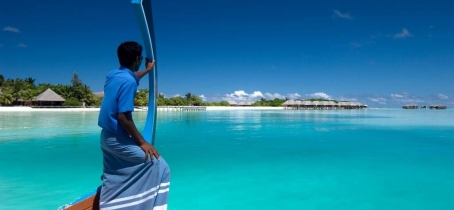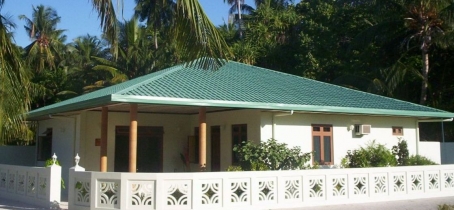Call me back
Name:
Email address:
Country code:
Call me between:
WhatsApp no:
Mobile no:
Make your choice:
Villa Stella: the pioneer of responsible tourism in the Maldives


Find our E-Brochure, watch our media Video, read our Reviews, or browse the LogBook of a day on board.
Maldives responsible tourism: the experience of Villa Stella
Villa Stella pioneered the responsible tourism in the Maldives, encouraging tourists to respectfully access remote Maldivian communities and experience the day to day island life.
Since 2003, friends and travelers have been visiting Villa Stella, the first private villa where overseas guests were invited to stay, on the inhabited island of Ribudhoo, in Dhaalu Atoll. On 10th March 2010, Villa Stella became an official guest house, duly registered at the Ministry of Tourism, and still remains the only one in the unique and wonderful Dhaalu Atoll.
FOR MORE INFO, QUOTATIONS AND RESERVATIONS CLICK HERE.
Responsible tourism means:
- minimizes negative economic, environmental, and social impacts
- generates greater economic benefits for the local people and enhances the well-being of host communities
- improves working conditions and access to the industry
- involves local people in decisions that affect their lives and life chances
- provides more enjoyable experiences for tourists through more meaningful connections with local people, and a greater understanding of local cultural, social and environmental issues
- engenders respect between tourists and hosts, and builds local pride and confidence.
Maldives: from tourism enclaves to responsible tourism
The tourism industry has been almost exclusively restricted to resort islands. Resort islands are self-contained properties where all the elements of a holiday (accommodation, meals, drinks, sports, and entertainment) are offered within the resort boundaries. Guests rarely leave the resort and thus little money feeds into the local economy. Resorts in the Maldives have lead to what is called “enclave tourism” in which local participation and interaction in these tourism services is very limited. Enclaves are regarded as contrary to responsible and sustainable tourism.
What's more, most of the resorts are owned or operated by foreign companies, thus a great part of the revenues are siphoned out of the country. Among the dispersed islands, in such a remotely located region, local islands were previously secluded from outside interaction; access to the inhabited islands was permitted by personal invitation only. Then, on 22nd July 2008, the Maldivian Parliament proposed an end to the government policy that banned tourist establishments on inhabited islands. Only a month later, on 19th August 2008, the authorization came through, which finally allowed the registration of guests houses located on any island of the archipelago.
Holserv Pvt Ltd, All Rights Reserved.

